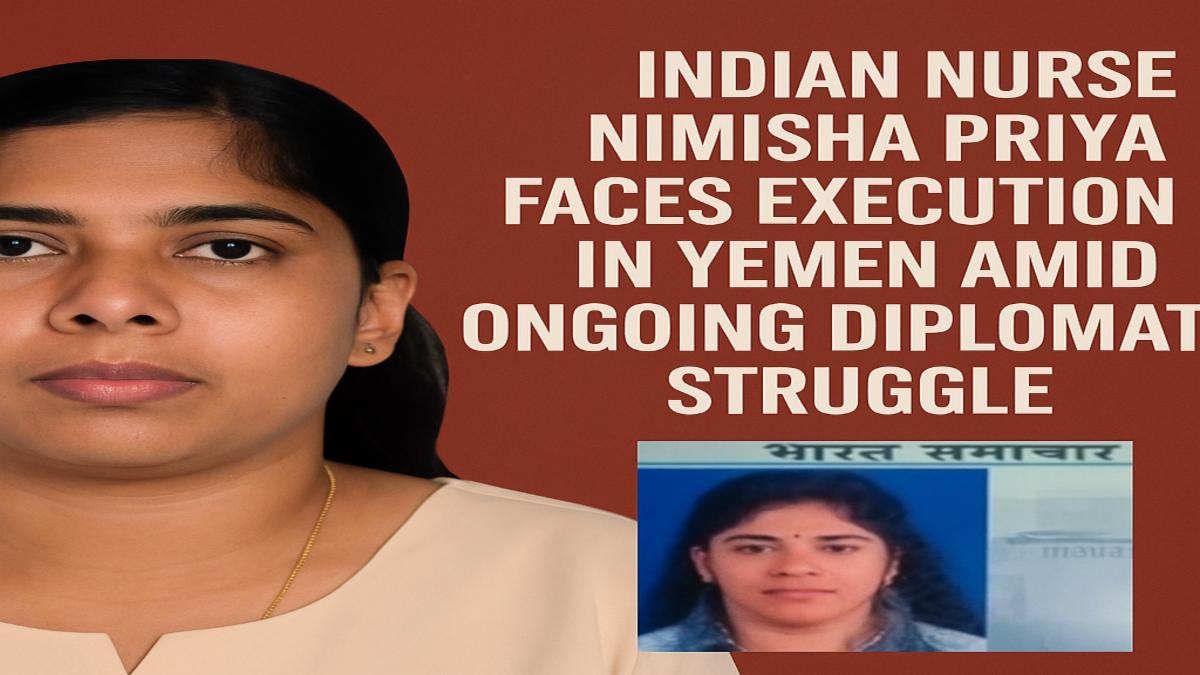Article Body
The Clock Ticks: Indian Nurse Nimisha Priya Faces Execution in Yemen Amid Desperate Appeals
By Staff Correspondent | Updated: July 9, 2025
The date is set. July 16.
Unless something extraordinary happens, that’s when Nimisha Priya, a 37-year-old nurse from Kerala, will be led to the gallows in war-torn Yemen.
Her story is as complicated as the geopolitics surrounding her. In 2017, Priya was accused of murdering her Yemeni employer, Talal Abdo Mehdi, after he allegedly withheld her passport—effectively trapping her in the country. The court claimed she sedated him to retrieve her documents. But the dosage went horribly wrong, killing him. What followed was grisly: she, along with a Yemeni acquaintance, allegedly dismembered his body and disposed of it in a water tank.
“I didn’t mean for it to happen this way,” Priya reportedly told interrogators during initial questioning. But by then, it was far too late.
She was sentenced to death by a local court in 2018. And now, years later, her final days appear numbered.
What’s more heartbreaking is the silence surrounding her. Her family has pleaded. Indian authorities have made diplomatic noises. But the levers of justice in Yemen are... different.
The country’s capital, Sana’a, where Priya is currently imprisoned, is under the control of the Houthi militia—an armed group locked in a long-standing civil war against the internationally recognized Yemeni government. That alone complicates negotiations. The Indian Ministry of External Affairs says they’ve been “in regular touch with local authorities,” but even seasoned diplomats know how hard it is to navigate Yemen’s fragmented power structure.
“We are exhausting every possible channel,” said a senior Indian official on condition of anonymity. “But time is not on our side.”
Meanwhile, Priya’s family clings to hope. Back home in Palakkad, Kerala, her mother lights a lamp every evening, whispering prayers that somehow her daughter is spared.
That said, public sentiment is mixed. Some see Priya as a victim of a cruel system that left her desperate and powerless. Others are less forgiving, pointing to the gruesome nature of the crime.
But here’s the uncomfortable truth: justice in conflict zones isn’t just about guilt or innocence. It’s about who holds power, and what mercy looks like in a land gripped by war.
Final thought?
Whatever the verdict of law may be, this isn’t just the story of one woman. It’s a window into the frightening vulnerability of migrant workers—especially women—abroad. And if Nimisha Priya’s final breath is taken on July 16, history may someday ask whether more could’ve been done.

Comments